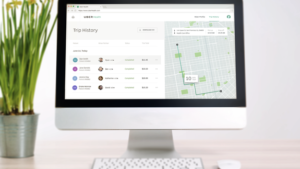
Healthcare is big business, and tech companies don’t want to miss out just because they’re busy building smartphones, apps, and self-driving cars.
Uber announced its new Uber Health platform Thursday. It’s a way for healthcare organizations to order rides for patients who are receiving care at their facilities. Uber also launched an API so the ride-hailing service can be built into existing healthcare tools.
This isn’t an exact replica of the existing Uber app. Instead, health facilities can schedule rides for patients and caregivers (up to a month ahead of time, so patients can get to appointments and make sure they get their follow-up care). The facilities also pay for the rides. Uber Health hopes to replace the transportation options facilities usually book to pick up patients.
Unlike the Uber app, rides work for patients without smartphones. Instead, the rides are coordinated through text message, and there’s a forthcoming plan to set up calls to landlines or cellphones instead of texting.
Hospitals, rehab centers, and senior care facilities —and more than 100 organizations across the U.S. — are already using a beta version of the program.
Uber isn’t the first major tech company to break into the healthcare space, which the World Economic Forum values at $6.5 trillion worldwide. Companies like Apple and Google are collecting tons of data on their users, which means it’s not much of a stretch for them to start using information about our eating, sleeping, and heart rate patterns to create new tools and products.
Last month Google announced an algorithm that can detect, via an eye scan, whether someone has high blood pressure or is at risk for a heart attack or stroke. The researchers were part of Google’s health research division, Verily, which became part of the company in 2015. The AI has a 70 percent accuracy rate, and it’s improving.
Apple is using its Apple Watch product to track health signals like heart rate. With the KardiaBand, wearers can accurately detect irregular heartbeats and other indicators about poor heart health.
Apple introduced the health platform to its operating system back in 2014 and has big goals for diabetes care and other tools for health.
This week Apple announced its own health clinic system, AC Wellness, for its employees.
Even Amazon is rumored to be thinking about creating its own healthcare company. Depending on how you look at it, that’s either very far — or super close — to selling everything from books to yoga pants to succulents through its online store. Alexa, Amazon’s digital assistant, already knows a lot about users’ habits and health problems, like if you’re asking which pharmacies are open or inquiring as to home remedies for a sore throat.
Health and tech are blurring together. But instead of prescription slips, it’s apps, wearables, and AI. Get ready for the future.


